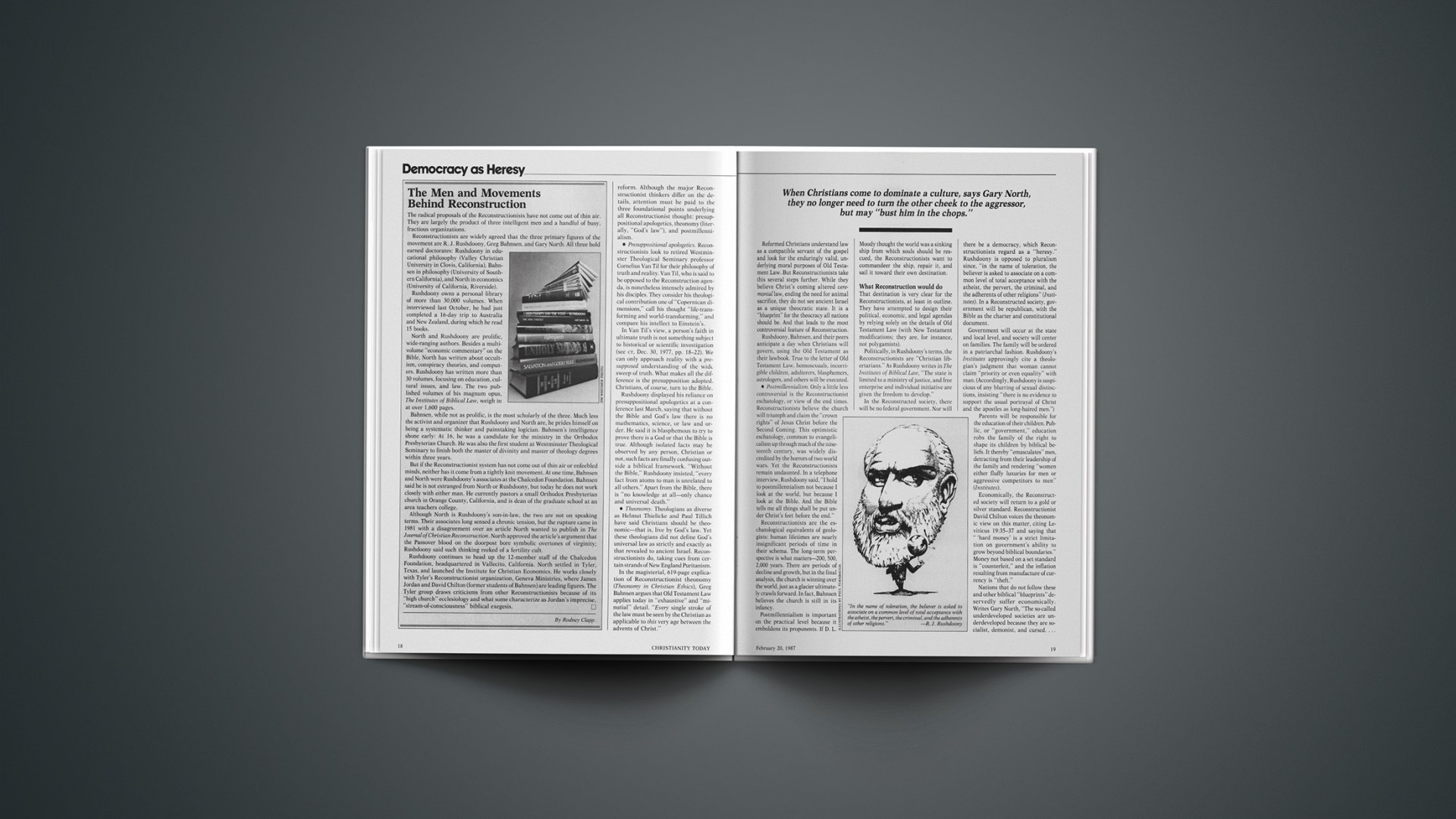The radical proposals of the Reconstructionists have not come out of thin air. They are largely the product of three intelligent men and a handful of busy, fractious organizations.
Reconstructionists are widely agreed that the three primary figures of the movement are R. J. Rushdoony, Greg Bahnsen, and Gary North. All three hold earned doctorates: Rushdoony in educational philosophy (Valley Christian University in Clovis, California), Bahnsen in philosophy (University of Southern California), and North in economics (University of California, Riverside).
Rushdoony owns a personal library of more than 30,000 volumes. When interviewed last October, he had just completed a 16-day trip to Australia and New Zealand, during which he read 15 books.
North and Rushdoony are prolific, wide-ranging authors. Besides a multivolume “economic commentary” on the Bible, North has written about occultism, conspiracy theories, and computers. Rushdoony has written more than 30 volumes, focusing on education, cultural issues, and law. The two published volumes of his magnum opus, The Institutes of Biblical Law, weigh in at over 1,600 pages.
Bahnsen, while not as prolific, is the most scholarly of the three. Much less the activist and organizer that Rushdoony and North are, he prides himself on being a systematic thinker and painstaking logician. Bahnsen’s intelligence shone early: At 16, he was a candidate for the ministry in the Orthodox Presbyterian Church. He was also the first student at Westminster Theological Seminary to finish both the master of divinity and master of theology degrees within three years.
But if the Reconstructionist system has not come out of thin air or enfeebled minds, neither has it come from a tightly knit movement. At one time, Bahnsen and North were Rushdoony’s associates at the Chalcedon Foundation. Bahnsen said he is not estranged from North or Rushdoony, but today he does not work closely with either man. He currently pastors a small Orthodox Presbyterian church in Orange County, California, and is dean of the graduate school at an area teachers college.
Although North is Rushdoony’s son-in-law, the two are not on speaking terms. Their associates long sensed a chronic tension, but the rupture came in 1981 with a disagreement over an article North wanted to publish in The Journal of Christian Reconstruction. North approved the article’s argument that the Passover blood on the doorpost bore symbolic overtones of virginity; Rushdoony said such thinking reeked of a fertility cult.
Rushdoony continues to head up the 12-member staff of the Chalcedon Foundation, headquartered in Vallecito, California. North settled in Tyler, Texas, and launched the Institute for Christian Economics. He works closely with Tyler’s Reconstructionist organization, Geneva Ministries, where James Jordan and David Chilton (former students of Bahnsen) are leading figures. The Tyler group draws criticisms from other Reconstructionists because of its “high church” ecclesiology and what some characterize as Jordan’s imprecise, “stream-of-consciousness” biblical exegesis.
By Rodney Clapp.










